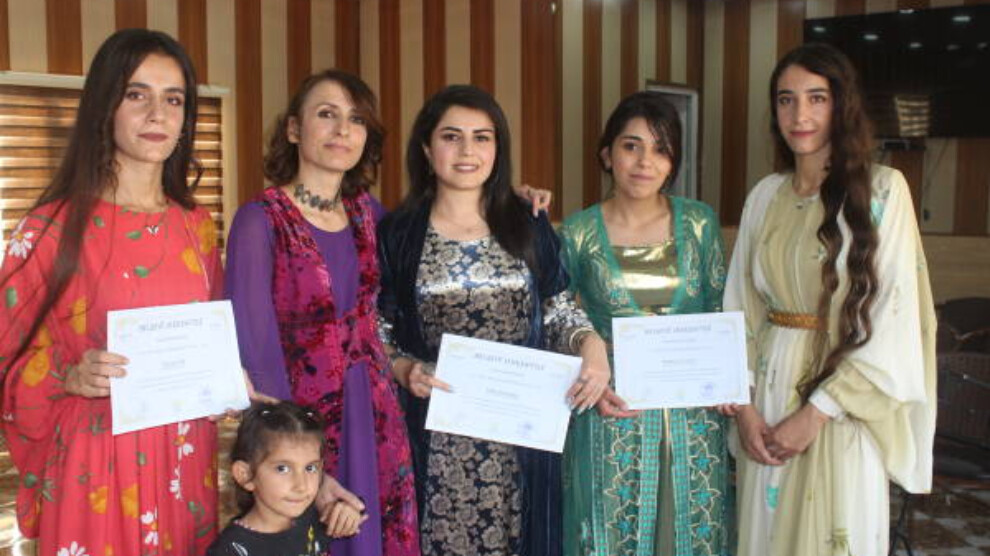20 students get their graduation certificates in Kirmanckî in Qamishlo
After four months of successful joint learning, 20 graduates of the Kirmanckî courses in Qamishlo received their certificates.
After four months of successful joint learning, 20 graduates of the Kirmanckî courses in Qamishlo received their certificates.

20 students from two different Kirmanckî courses in Qamishlo received their certificates in a joyful ceremony. For four months, the students had classes with teacher Hacer Petekkaya at the “Kurdish Language Institute” in the center of Qamishlo. They learned this endangered Kurdish language and after the completion of these courses they will begin the advanced one this month.
A course to learn Kirmanckî - this variety of Kurdish is also called Zazakî, Dimilkî or Kirdkî - in Rojava was a first. In fact, two courses in the language institute and one course at Rojava University were offered for the first time this year as a compulsory subject in the Kurdish literature course. The courses are also open to everyone.
Kirmanckî is one of the oldest Kurdish dialects, which was mainly only spoken and was not written down until very late. The first texts can be found in the late 19th century. Once upon a time, this was a widespread language, but now it is only spoken in parts of a few provinces of North Kurdistan like Dersim and Bingöl, in the north and west of Amed (Diyarbakir), in Sêwreg in the province of Urfa, in parts of Muş, Erzurum, Elazığ, Bedlîs, Qoçgirî, Meletî and Semsûr. In these provinces, Kirmanckî is above all a language of old people. The new generation only speak fragmentarily or not at all, this once so important language.
Teacher Hacer Petekkaya was honoured for giving a contribution to the further development of the Kirmanckî. Every word learned in the course is a resistance to oblivion, because when a language dies, a culture dies too.
The Institute for Kurdish Languages organized a joyful ceremony for the awarding of the certificates. The graduates performed the song Xim Xime Torevan together with their teacher. A noticeable number of women wore beautifully coloured traditional dresses. Short speeches and greetings emphasized the importance of the language and two important institutions, the “Vate Working Group” founded in Stockholm in 1996 and the Istanbul-based “Institute for Kurdish Studies”, paid tribute to the importance of the language courses with video messages. The personal message of writer Malmîsanij (alias Mehmet Tayfun), who consistently writes his books on Kirmanckî and publishes the results of his linguistic research, was particularly impressive.
The Kirmanckî courses in Qamishlo were dedicated to the spiritual and tribal mastermind of the resistance in the Alevi-Kurdish Dersim, Pîr Sey Rızo (Seyit Rıza), who was executed by the Turkish state in 1937. There is also a bust of him in the language institute.
At the end of the ceremony, opera singer Mizgîn Tahir sang traditional songs in three Kurdish languages, accompanied by the “Rojava Youth Orchestra”.